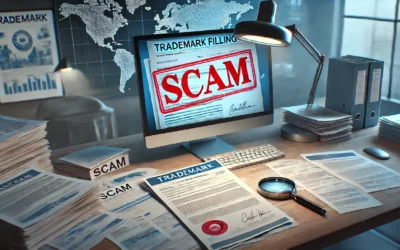Registering a trademark is not free. There is a cost that you must bear. However, the cost is quite low and it is an investment that will save you a lot of money in the long term. The challenge with that is that often you have no way of knowing when these savings occur. It’s easy to say for example that traffic lights prevent accidents, although you cannot pinpoint concretely which accidents were avoided. In the same way, you will probably not know if another company chooses a different brand name because they saw your registration. Here are four ways that a trademark registration will save you money.
Prevent conflicts
One of the most obvious advantages of trademark registration is its ability to serve as a public notice of your rights. Trademark databases are public and they include the details of your registration. Your trademark is searchable in the official trademark databases, making it visible to other businesses.
This visibility acts as a deterrent, prompting companies to avoid similar marks and potential conflicts. When companies develop new brands, they typically search trademark databases to avoid legal troubles. If they see that somebody has already registered the same or very similar trademark, they tend to choose another brand name for themselves.
This way, your trademark registration will save you money in avoiding legal conflicts that might otherwise arise. Of course, it is not possible to know how many conflicts have been avoided, so it may also be difficult to appreciate this kind of saving.
Trademark offices will work for you
Trademark laws vary from country to country, but many jurisdictions share a common principle – they will reject trademark applications that conflict with existing registered marks. In this way, the trademark offices do the trademark enforcement on your behalf. Examples of these kinds of countries include the US, China, Japan and South Korea.
This means that by securing a trademark registration you create a barrier for potential competitors trying to register similar marks. This can save you the time and resources that might be spent on opposition proceedings or legal disputes stemming from conflicting applications.
Having said that, in most European countries the trademark offices do not automatically block conflicting applications. Examples of countries where prior trademarks automatically block later applications include Ireland, Portugal, and Sweden.
The EUIPO informs the owners of EU trademarks about later applications that might be in conflict. Also, trademark offices of Greece and Spain do this. There are countries where the trademark office informs the applicant about potentially conflicting prior trademarks although they are not raised as obstacles to registration. Examples of these kinds of countries include the UK and Denmark.
By registering your trademark, you can enlist many national trademark offices to work for you for free. They will look after your interests by blocking conflicting applications.
Handle disputes cheaper
It is not always possible to avoid trademark infringements altogether. If somebody adopts a trademark that conflicts with your trademark, you are in a much better position to end the conflict quickly and much cheaper if you have registered your trademark.
If your trademark is not registered, establishing your claim is much harder and much more expensive. It is also much easier for the other party to dispute your rights if your mark is not registered.
Especially in European countries where use-based rights are not typically recognised as easily as in the United States, relying on unregistered trademark rights makes your case difficult and very expensive even in the best case scenario.
If your mark is registered, you only have to show the registration certificate (or a printout from the database) to establish your rights. If your mark is not registered, you will have to provide a truckload of evidence and hope that that will be sufficient to establish your rights.
With registration, you can prove the existence of your rights by showing the certificate. This efficiency will translate into substantial savings.
Reduce the risk of rebranding
Rebranding can be a costly and time-consuming process that involves changing everything from marketing materials to product packaging. All investments made in making the brand known will largely go to waste.
By registering your trademark early you significantly reduce the likelihood of facing a rebranding necessity due to infringement claims. If you register your trademark, nobody else can after that date obtain superior rights to a similar name.
Conversely, if you do not register your trademark, you run the risk that somebody else registers a similar mark and demands that you stop using your mark because it infringes on their rights.
Conclusion
Many companies think of trademark expenses as pure costs. There’s no denying that trademark protection has a price tag. Many of our clients think how much it costs and whether they can afford it.
However, a much more important question is how much does it cost to not register your trademark, and can you afford that? In most cases, the answers to these questions are: Yes, you can afford to register your trademark, and no, you cannot afford not to register it.
See also
Trademark blunder that cost 160 million USD – don’t make the same mistake
We surveyed 400 companies – these are the five biggest trademark misunderstandings they have



